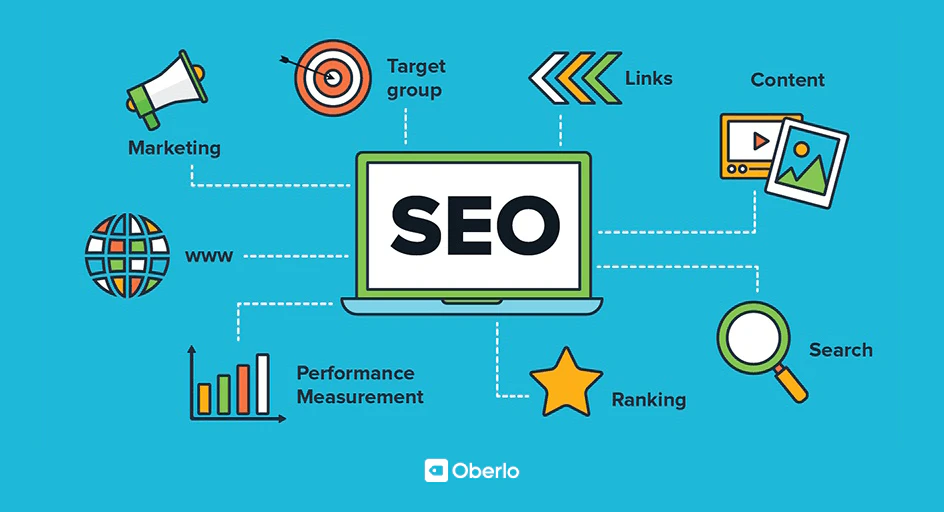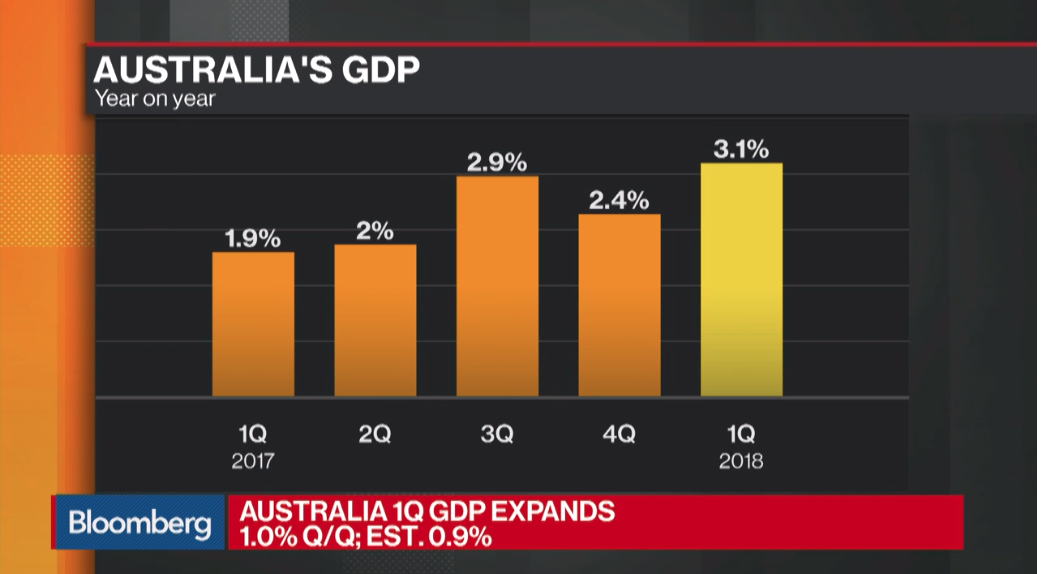Business
12 Must-Ask Questions For SEO Consultants

Asking the right questions is crucial to assess an SEO consultant’s knowledge and ensure that their strategies align with your goals.
These ten questions will help you separate the competent SEO consultants from others and make informed choices that will boost your online presence.
Key Takeaways:
- Clear Communication: Clarity in communication with SEO consultants is key to ensure successful collaboration and achieve desired results.
- Experience and Expertise: It is crucial to inquire about the consultant’s experience and expertise in the field of SEO to ensure they can deliver the desired outcomes.
- Strategy Alignment: Ensure that the SEO consultant’s strategies align with your business goals and objectives for a successful SEO campaign.
- Reporting and Monitoring: Discuss the frequency and format of reporting and monitoring the progress of your SEO campaign to track performance and make necessary adjustments.
- Ethical Practices: Confirm that the SEO consultant follows ethical practices and adheres to search engine guidelines to avoid any penalties and maintain long-term success.
1 – Experience and Track Record
Years in SEO?
There’s no substitute for experience when it comes to SEO. Ask your consultant how many years they’ve been working in the field. A seasoned professional will have a deep understanding of the ever-evolving landscape of search engine optimization and be able to navigate challenges with ease.
Previous Client Successes?
If you want to gauge the effectiveness of an SEO consultant, look at their track record of previous client successes. Ask for case studies or examples of websites they have helped optimize. It’s necessary to see real results to know if they can deliver on their promises.
It’s crucial to not only look at the number of successes but also the quality of those successes. Ask about the specific strategies they employed and the impact they had on the client’s online presence. A reliable SEO consultant will be able to provide detailed insights into how they achieved results for their clients.
2 – Strategy and Methodology
SEO Strategy Development?
Development of a solid SEO strategy is imperative for achieving long-term success in the online space. This involves thorough research, analysis of competitors, and a deep understanding of the target audience and industry trends. It is crucial to tailor the strategy to fit the specific needs and goals of the business.
Adherence to Search Guidelines?
If you want to ensure sustainable results and avoid penalties from search engines, adherence to search guidelines is non-negotiable. SEO consultants must stay updated on the latest algorithm changes and best practices to ensure that their strategies are compliant with search engine guidelines.
You can rely on reputable SEO consultants to implement ethical strategies that prioritize user experience and quality content, while also following search engine guidelines. This approach not only boosts your rankings but also builds trust and credibility with both search engines and your target audience.
3 – Keyword Research Proficiencies
Keyword Identification Processes?
Not all SEO consultants approach keyword research in the same way. If you want to ensure success for your website, make sure to ask potential consultants about their keyword identification processes. This will help you understand how they determine the most relevant and high-performing keywords for your site.
Competitor Keyword Analysis?
Little known fact: conducting a competitor keyword analysis can provide valuable insights into the keywords that are driving traffic to your competitors’ websites. By understanding what keywords your competitors are ranking for, you can develop a strategic plan to target similar keywords and potentially outrank them in search engine results.
Any seasoned SEO consultant should possess the skills and knowledge to thoroughly analyze your competitors’ keywords and use that information to benefit your own website’s SEO strategy. This type of competitive research can often uncover hidden opportunities and give you a competitive edge in your industry.
4 – On-Page Optimisation Techniques
Content Optimisation Strategies
Many SEO consultants agree that content optimization plays a crucial role in on-page SEO. This includes creating high-quality, relevant content that is not only valuable to the audience but also optimized for search engines. By using relevant keywords, optimizing heading tags, and structuring content for readability, you can improve your website’s ranking on search engine results pages.
Meta Data Approach
Some SEO consultants emphasize the importance of optimizing meta data, including title tags, meta descriptions, and meta keywords. By carefully crafting these elements to accurately reflect the content on each page, you can improve click-through rates and visibility in search results.
An effective meta data approach involves conducting keyword research to identify the best keywords to target, then strategically incorporating them into your meta tags. Title tags should be concise, descriptive, and include the targeted keyword, while meta descriptions should provide a compelling summary of the page’s content to entice users to click through.
Strategies for meta data optimization also include avoiding duplicate meta tags, utilizing schema markup to provide additional context to search engines, and regularly monitoring and adjusting meta data for optimal performance.
5 – Understanding of Technical SEO
Site Audit Capabilities?
Audit your potential SEO consultant’s site audit capabilities by asking them about the tools and processes they use to conduct technical SEO audits. A thorough site audit is crucial for identifying structural issues, indexation problems, and overall website health. Look for consultants who can provide detailed reports and actionable recommendations based on their findings.
Load Speed Optimisation?
Assuming load speed optimization is crucial for SEO success, inquire about your consultant’s experience in optimizing website loading times. Slow loading speeds can negatively impact user experience and search engine rankings. Make sure your consultant is well-versed in techniques such as image optimisation, code minification, and server response time improvements to enhance site speed.
The consultant’s understanding of technical SEO, including site audit capabilities and load speed optimization, can significantly impact the success of your SEO strategy. It is crucial to work with a consultant who can navigate the complexities of technical SEO and implement solutions that improve your website’s overall performance and visibility in search results.
6 – Off-Page SEO Tactics
Link Building Strategies?
Off-Page SEO is a crucial aspect of any successful SEO campaign. One of the most effective off-page SEO tactics is link building. This involves acquiring backlinks from high-quality websites that point back to your site. Quality backlinks not only drive traffic to your site but also signal to search engines that your site is reputable and authoritative.
Social Signals Utilisation?
Tactics
Social signals refer to the activity and engagement your website receives on social media platforms. Utilising social signals can help boost your site’s visibility and credibility. By creating shareable content and fostering a strong social media presence, you can improve your site’s social signals and potentially improve your search engine rankings.
7 – SEO Tools and Software
Tools for Analysis?
All SEO consultants should be well-versed in using a variety of tools for in-depth analysis of website performance and keyword research. If you want to ensure success in your SEO strategy, it’s crucial to ask your consultant which tools they use and how they leverage them to provide insights and recommendations for your website.
Reporting Software Proficiency?
Any reputable SEO consultant should be proficient in using reporting software to track and measure the success of their SEO strategies. It’s important to inquire about the reporting tools they use to monitor progress, measure key performance indicators, and adjust strategies accordingly. Understanding how they utilize reporting software will give you insight into their analytical skills and ability to deliver results.
You can expect a seasoned SEO consultant to be adept at using a variety of reporting tools such as Google Analytics, SEMrush, Moz, Ahrefs, and others to provide comprehensive insights into your website’s performance and SEO efforts.
8 – Reporting and Communication
Report Frequency and Details?
The success of an SEO campaign relies heavily on clear and transparent communication between the consultant and the client. All parties involved need to be on the same page regarding the progress of the campaign. The question of report frequency and details is crucial in ensuring that communication is effective and expectations are met. Clients must understand the work being done and the results being achieved.
Communication Channels and Responsiveness?
Effective communication channels are imperative for successful SEO consulting. The ability to reach the consultant easily and receive timely responses to queries or concerns can make a significant difference in the success of a campaign. Clearly defined lines of communication and quick responsiveness are key factors to consider when evaluating an SEO consultant’s services.
Responsiveness plays a critical role in maintaining a good client-consultant relationship. Whether it’s via email, phone, or a project management tool, the consultant should be prompt in addressing any issues or questions that may arise. This level of responsiveness instills confidence in the client and demonstrates a high level of professionalism on the part of the consultant.
9 – Success Metrics and KPIs
Primary KPIs for Campaigns?
The primary Key Performance Indicators (KPIs) for SEO campaigns are imperative to track the effectiveness of your strategies. These can include organic traffic growth, keyword ranking improvements, backlink acquisition, organic conversions, and bounce rate reduction. By closely monitoring these metrics, you can ensure your SEO efforts are on track towards achieving your goals.
Measuring and Reporting ROI?
KPIs related to measuring and reporting Return on Investment (ROI) in SEO are crucial for demonstrating the impact of your efforts on the business’s bottom line. These can include revenue generated from organic traffic, cost per acquisition for organic leads, conversion rates, and lifetime customer value. By analyzing these metrics, you can showcase the tangible results of your SEO campaigns to stakeholders.
For instance, tracking the revenue attributed to organic search can provide valuable insights into the monetary value generated by your SEO strategies. By calculating the ROI based on the revenue gained and the costs associated with SEO efforts, you can determine the overall success and effectiveness of your campaigns.
10 – Adaptability to Algorithm Changes
Approach to Google Updates?
Even the most experienced SEO consultants need to stay on top of Google’s ever-evolving algorithms. A successful SEO consultant will have a proactive approach to Google updates, constantly monitoring industry news, attending webinars, and participating in forums to understand and adapt to any changes swiftly.
Staying Ahead of Trends?
Now, staying ahead of trends is crucial for SEO success. Consultants must continually research and analyze emerging trends in the industry to guide their clients in the right direction. By anticipating future changes and being proactive in their strategies, SEO consultants can help their clients maintain a competitive edge in the digital landscape.
With the digital landscape constantly evolving, it’s crucial for SEO consultants to remain adaptable and proactive in their approach to algorithm changes and emerging trends. By staying informed and continuously refining their strategies, consultants can ensure lasting success for their clients in the ever-changing world of SEO.
11 – Industry Specialisation or Focus
Specialized Industry Experience?
There’s a common saying that goes, “Jack of all trades, master of none.” When considering SEO consultants, having specialized industry experience can make a significant difference in the success of your SEO strategies. An SEO consultant who has worked extensively in your specific industry will have a better understanding of the unique challenges, trends, and keywords that are crucial for achieving success in that particular field. Their specialized knowledge can help tailor your SEO approach to align with industry best practices and ultimately drive better results.
Broad vs. Niche Focus?
To reach the widest audience possible, some SEO consultants adopt a broad focus that covers a diverse range of industries. While this approach can be beneficial in terms of versatility, a niche focus can provide deeper insights and expertise in a specific industry. Consultants who specialize in a niche industry can offer more targeted strategies and solutions that are tailored to the nuances of that particular market. This focused approach can often lead to more effective SEO campaigns and higher ROI for businesses operating within that industry.
Focus is key when it comes to SEO consulting. Whether you opt for a broad or niche focus, the most important factor is to ensure that your consultant has the expertise and experience to deliver results in your industry. By choosing the right focus for your business, you can maximize the impact of your SEO efforts and drive success in the competitive online landscape.
12 – Future Growth and Scalability
Plan for Scaling Efforts?
For SEO consultants, understanding a company’s plans for scaling efforts is crucial for devising a successful SEO strategy. If a company is gearing up for growth and expansion, the SEO consultant needs to anticipate increased demands and tailor their approach to ensure scalability.
Supporting Business Expansion?
Clearly understanding how SEO efforts can support business expansion is key for consultants. Expansion can present new markets, products, and competition, all of which impact SEO strategies. It’s crucial to align SEO efforts with the company’s expansion goals for continued success.
Expansion may involve entering new markets, launching new products, or expanding operations. SEO consultants need to adapt strategies to accommodate these changes and ensure that the company’s online presence grows alongside its business.
Conclusion
On the whole, asking the right questions is crucial when choosing an SEO consultant to ensure the success of your online presence. By thoroughly examining their experience, strategies, and communication skills, you can make an informed decision and achieve your desired results. Note, a reputable SEO consultant will not only answer your questions convincingly but will also demonstrate a clear understanding of your business goals and objectives. Take the time to ask these 10 must-ask questions to set the foundation for a productive and successful partnership with your SEO consultant.
FAQ
Q: Why is it important to ask questions when hiring an SEO consultant?
A: It is crucial to ask questions to ensure that the SEO consultant you hire has the necessary skills and experience to help your business succeed online.
Q: What are the key questions to ask when interviewing SEO consultants?
A: Some key questions to ask include inquiring about their past experience, strategies they employ, success stories, knowledge of industry trends, and communication methods.
Q: How can asking questions help in determining the credibility of an SEO consultant?
A: Asking questions allows you to gauge the depth of knowledge and expertise of the SEO consultant, helping you determine if they are credible and capable of delivering results.
Q: How can asking questions about past experiences benefit in the selection process?
A: Inquiring about past experiences allows you to understand the consultant’s track record, success stories, challenges faced, and the strategies that led to successful outcomes.
Q: What role does asking about SEO strategies play in the decision-making process?
A: Understanding the strategies employed by the SEO consultant gives insight into their approach, methodologies, and the suitability of their tactics for your business goals.
Q: Why is it important to ask about the consultant’s knowledge of industry trends?
A: Inquiring about their knowledge of industry trends ensures that the consultant stays updated with the latest advancements in SEO practices, which is vital for driving results in a dynamic digital landscape.
Q: How can communication methods impact the effectiveness of the collaboration with an SEO consultant?
A: Clear communication is vital for a successful partnership with an SEO consultant as it ensures alignment on goals, progress updates, and a shared understanding of expectations throughout the project.
Business
Uber Settles Taxi Court Battle for $272 Million

Uber has agreed to pay a whopping $272 million to resolve a protracted legal dispute with taxi drivers and their associations, marking a significant milestone in the ride-sharing and transportation industries. This large payment is a turning point for the ride-sharing sector as a whole, not just for Uber. This article explores the complexities of the lawsuit, the settlement’s effects, and the settlement’s wider implications for the provision of transportation services in the future.
The Origins of the Legal Battle:
The legal battle between Uber and the taxi industry has its origins in the early stages of the ride-sharing movement. Traditional cab operators and drivers expressed concerns about unfair competition and regulatory compliance as Uber and similar services gained traction. Legal challenges against Uber were brought by taxi associations all across the world. They claimed that Uber had violated transportation legislation, engaged in unfair business practices, and had lost revenue as a result of the growth of ride-sharing services.
The Legal Landscape:
Uber and the taxi industry were embroiled in a multi-front legal struggle that was being waged in different jurisdictions worldwide. The classification of Uber drivers, governmental monitoring of ride-sharing platforms, and the effect of technological innovation on established taxi services were at the center of these legal issues. The lengthy duration of the
Uber’s Response:
Uber remained true to its position as a tech platform that links drivers and passengers rather than a transportation provider governed by the same laws as conventional taxi services throughout the court dispute. Uber maintained that its cutting-edge business strategy, which offers more efficiency, affordability, and convenience than conventional taxis, signifies a paradigm shift in the way customers access transportation services.
Uber persisted in growing its global presence in spite of legal issues and regulatory scrutiny, revolutionizing urban mobility and changing the transportation industry. The business’s capacity to bounce back from setbacks and adjust showed how disruptive technology-driven innovation can be in established sectors.
The Settlement:
Uber and taxi drivers and their groups have achieved a historic settlement, with Uber agreeing to pay $272 million to end the case, following years of legal wrangling and courtroom fights. Even while the compensation is large financially, it also serves as a metaphor for Uber and the taxi industry’s reconciliation and compromise.
Key Terms of the Settlement:
The $272 million settlement contains provisions for regulatory compliance and collaboration between Uber and the taxi sector, as well as compensation for associations and taxi drivers impacted by the growth of ride-sharing services. The settlement also creates a framework for continued discussion and cooperation to address common issues and opportunities in the quickly changing transportation sector.
Implications and Future Outlook:
The future of ride-sharing and transportation services is significantly affected by the settlement reached between Uber and the taxi industry. It foreshadows a change towards increased collaboration and integration between conventional cab companies and online platforms, opening the door to a more peaceful and long-lasting ecology.
Furthermore, the settlement underlines how increasingly people are realizing how important it is to have fair and transparent regulations in the ever-changing transportation sector. It is becoming more and more difficult for regulators and policymakers to strike a balance between promoting innovation and defending the interests of all stakeholders as ride-sharing continues to transform cities and consumer behavior.
Finding a middle ground between protecting the interests of all parties involved and encouraging innovation.
To sum up, the $272 million settlement that Uber reached with the taxi industry is a critical turning point in the development of ride-sharing and transportation services. The end of this protracted legal dispute is indicative of a rising understanding that, in the face of technological upheaval, cooperation and compromise are essential. Urban mobility promises to be both inclusive and revolutionary in the future as Uber and other ride-sharing platforms develop alliances with conventional stakeholders and manage the regulatory landscape.
Business
Australia’s GDP Outlook Brightens with Better-Than-Expected Exports

Fears of an economic contraction have been dulled with the latest net export result exceeding expectations.
Ahead of December quarter national accounts on Wednesday, some economists were warning GDP may have gone backwards for the last three months of 2023.
Data released on Monday showed firms running down their inventories over the quarter in a result that was weaker than expected and anticipated to wipe one percentage point off the December GDP.
But Tuesday’s stronger-than-expected net exports outcome should add 0.6 percentage points to growth over the quarter and counter some of the drag from private inventories.
Government spending data, also released on Tuesday, tracked broadly in line with expectations, with public sector inventories to contribute 0.4 percentage points to growth according the ABS.
ANZ senior economist Blair Chapman said the larger-than-expected net exports addition and an increase in public sector inventories would offset weak private inventories.
The bank is expecting a weak 0.3 per cent increase over the quarter, a little higher than the 0.2 per cent market forecast.
Annually, it anticipates a 1.5 per cent lift.
Mr Chapman said such a result would line up with the Reserve Bank’s expectations of where growth should be tracking.
“But, while GDP may come in roughly around the RBA’s expectations, recent monthly consumer price index and labour market data have increased the risk that the RBA could ease sooner than our November expectation,” he said.
Treasurer Jim Chalmers was out warning of a weak growth report on Tuesday, though his remarks came before the final data releases that slot into GDP.
“There is enough around to trouble us about how the economy finished 2023,” he told ABC TV.
Despite the forecasts for the quarter, Dr Chalmers said Australia was in a better position than similar economies, which had gone into recession during the same time period.
“The December quarter in the Australian economy and indeed the global economy was quite weak,” he said.
“Remember, that was the quarter where we saw Japan and the UK both go into recession.
“We had an interest rate hike right in the middle of that December quarter, we had those persistent cost of living pressures that people are confronting in our communities and around our country.”
Business
Importance of Influencer Marketing for Leads

Utilizing influential individuals in the digital world to drive lead generation is a powerful marketing strategy that can yield significant results for businesses. In today’s crowded online marketplace, it’s essential for brands to understand the impact of influencer marketing and how to effectively leverage it to reach their target audience. Whether you’re a small startup or an established corporation, tapping into the power of influential individuals can skyrocket your lead generation efforts and boost brand awareness. In this blog post, we’ll delve into the secrets of influencer marketing and provide actionable insights on how to harness the influence of key individuals to drive leads and grow your business.
Key Takeaways:
- Identify the right influencers: It is crucial to research and identify influencers who align with your brand and have an engaged audience relevant to your target market.
- Build authentic relationships: Developing genuine connections with influencers is key to establishing trust and ensuring the success of influencer marketing campaigns.
- Provide value to the influencer: Offering value, whether it be through monetary compensation, exposure, or exclusive opportunities, is essential in building a mutually beneficial relationship with influencers.
- Create compelling content: Collaborating with influencers to create high-quality and engaging content that resonates with their audience is crucial for successful lead generation.
- Track and measure results: Utilizing analytics and performance metrics to track the success of influencer marketing campaigns is important in refining strategies and maximizing lead generation efforts.
Identifying the Right Influencers
Now that we understand the importance of influencer marketing, it’s crucial to identify the right influencers who can effectively help in lead generation. Identifying the right influencers is a meticulous process that involves understanding their influence, relevance, and various criteria for selection.
Understanding Influence and Relevance
On the quest to identify the right influencers, it’s essential to understand the concepts of influence and relevance. Influence refers to an individual’s ability to affect the opinions, attitudes, and behaviors of others. When it comes to influencer marketing, it’s important to identify individuals who have a strong influence in your target market. Relevance, on the other hand, refers to the alignment between the influencer’s content and your brand or product. The more relevant the influencer’s content is to your target audience, the more effective their influence will be in generating leads.
Criteria for Selecting Influencers
Criteria for selecting influencers include factors such as the size and engagement of their audience, the authenticity and credibility of their content, their alignment with your brand values, and their past collaborations with other brands. The size and engagement of an influencer’s audience are crucial as it determines the reach and impact of their influence. Authenticity and credibility play a significant role in gaining the trust of their followers, essential for lead generation efforts. It is also important to ensure that the influencer’s values align with your brand to maintain brand authenticity.
This careful consideration of the criteria for selecting influencers will ensure that you partner with individuals who can effectively drive lead generation through their influence and relevance. With the right influencers on board, your influencer marketing strategy will have the potential to reach a wider audience, build trust, and generate high-quality leads for your business. This process demands attention to detail and a thorough understanding of your target audience and brand values.
Crafting the Perfect Collaboration
Clearly, one of the most important aspects of influencer marketing is the collaboration between the brand and the influencer. Crafting the perfect collaboration is crucial for a successful influencer marketing campaign. It requires the brand and the influencer to work together seamlessly, aligning their objectives and ensuring that the partnership benefits both parties.
Establishing Clear Campaign Goals
For a successful influencer marketing collaboration, it is essential to establish clear campaign goals from the outset. Whether the goal is to increase brand awareness, drive website traffic, or generate leads, both the brand and the influencer need to be on the same page. Setting clear and measurable objectives will guide the collaboration and ensure that the campaign delivers the desired results. It is important to communicate these goals effectively and create a plan that aligns with the brand’s overall marketing strategy.
Creating Authentic and Engaging Content
With the rise of ad blockers and the decline of traditional advertising effectiveness, creating authentic and engaging content has become the key to capturing the attention of the audience. Influencer marketing offers brands the opportunity to connect with their target audience in a more authentic way. By collaborating with influencers who have a genuine connection with their followers, brands can create content that resonates and drives engagement.
Engaging content that feels natural and fits seamlessly into the influencer’s feed or platform will enhance the brand’s message and increase the likelihood of generating leads. It is essential to focus on storytelling and creating content that adds value to the influencer’s audience while also promoting the brand in a subtle and authentic manner. This approach will result in higher engagement and a more positive reception from the audience.
Optimizing and Scaling Your Influencer Campaigns
Your influencer marketing campaigns have successfully generated leads and increased brand awareness. Now it’s time to optimize and scale your efforts to reach even greater heights of success. Here’s how you can take your influencer campaigns to the next level.
Measuring Campaign Success
Your first step in optimizing and scaling your influencer campaigns is to measure their success. Use tools and analytics to track metrics such as engagement, click-through rates, and conversion rates. This data will help you understand which campaigns are most effective and which influencers are driving the best results for your brand. With this information, you can make informed decisions about where to allocate more resources and which influencers to continue working with.
Strategies for Scaling Up
Scaling up your influencer campaigns involves expanding your reach and impact. This can be achieved through collaborating with a wider network of influencers, investing in sponsored content, and increasing your budget for influencer partnerships. As your campaigns grow, it’s important to maintain the authenticity and credibility of your brand by selecting influencers who align with your values and resonate with your target audience.
Campaigns that successfully scale up will have a broader reach and generate even more leads and conversions for your business. However, it’s essential to carefully manage and monitor the increased activity to ensure that your brand’s image remains consistent and compelling.
Navigating Challenges in Influencer Marketing
Keep, influencer marketing is not without its challenges. As with any marketing strategy, there are hurdles that must be navigated in order to achieve success. Some of the most common challenges in influencer marketing include handling negative feedback and reputation management, legal considerations and compliance, and navigating the ever-changing landscape of social media platforms.
Handling Negative Feedback and Reputation Management
An influencer marketing campaign, no matter how carefully planned, can sometimes attract negative feedback. It’s important for brands to have a plan in place for handling criticism and negative feedback in a way that preserves their reputation and maintains the trust of their audience. Addressing negative comments or reviews in a timely and respectful manner can go a long way in mitigating any potential damage to a brand’s reputation. It’s also important for brands to work closely with influencers to ensure that any negative feedback is addressed appropriately and in a way that aligns with the brand’s values and messaging.
Legal Considerations and Compliance
For influencer marketing campaigns, there are legal considerations and compliance that must be carefully managed. From disclosing sponsored content to adhering to data privacy laws, brands must ensure that their influencer marketing efforts are in line with legal requirements. Failure to do so can result in legal trouble and damage to a brand’s reputation. It’s imperative for brands to work with legal professionals who are well-versed in influencer marketing and can provide guidance on compliance with relevant laws and regulations.
A comprehensive understanding of the legal landscape surrounding influencer marketing is crucial for brands looking to leverage influencer partnerships for lead generation. Ensuring compliance with data privacy laws, FTC guidelines, and other legal considerations is essential for building trust with consumers and safeguarding a brand’s reputation. Working with legal experts in the field of influencer marketing can provide brands with the necessary guidance and support to navigate these complex legal issues successfully.
The Power of Influencer Marketing for Lead Generation
The use of influential individuals in marketing campaigns can be an incredibly effective strategy for generating leads. By leveraging the existing authority and trust of these influencers, businesses can reach a wider audience and drive more conversions. In this digital age, where social media influencers hold significant sway over consumer behavior, incorporating influencer marketing into lead generation efforts is essential for staying competitive in the market. The most successful influencer marketing campaigns involve a careful selection of the right influencers, aligning their values with those of the brand, and creating authentic and engaging content that resonates with their followers. By following these influencer marketing secrets, businesses can maximize their lead generation efforts and achieve greater success in their marketing strategies.
FAQ
Q: What is influencer marketing and how does it work?
A: Influencer marketing is a strategy that involves leveraging influential individuals, or “influencers,” to promote a brand’s products or services to their audience. This is typically done through social media platforms, and influencers are chosen based on their following and relevance to the brand’s target audience. By partnering with influencers, brands can tap into their existing following and credibility to reach potential customers in a more authentic and effective way.
Q: How can influencer marketing help with lead generation?
A: Influencer marketing can help with lead generation by increasing brand visibility among a larger and more targeted audience. When influencers promote a brand’s products or services, their followers are more likely to trust and engage with the brand, leading to an increase in leads and potential customers. Additionally, influencers can create content that showcases the brand and its offerings, which can further drive lead generation through their authentic endorsement and recommendations.
Q: What are some key strategies for successful influencer marketing?
A: Key strategies for successful influencer marketing include identifying the right influencers for your brand, creating authentic and engaging partnerships, and measuring the success of your campaigns. It’s important to align with influencers whose values and audience align with your brand’s target audience. Additionally, creating a clear partnership that highlights the authenticity of the collaboration is essential, as well as measuring the performance of campaigns to optimize future influencer marketing efforts.
Q: How can a brand identify the right influencers for their influencer marketing campaigns?
A: Brands can identify the right influencers for their campaigns by considering factors such as the influencer’s relevance to their industry, the demographics and engagement of their followers, and the influencer’s past brand partnerships. It’s important to collaborate with influencers who resonate with your brand’s values and audience, and who have a genuine connection with their followers.
Q: What are the potential benefits of leveraging influential individuals for lead generation?
A: The potential benefits of leveraging influential individuals for lead generation include increased brand awareness, higher engagement and credibility, access to a larger audience, and the potential for long-term brand loyalty. Influencers can help brands reach new prospective customers and retain existing ones through their authentic and influential endorsements and content creation.
Q: What are some common pitfalls to avoid in influencer marketing for lead generation?
A: Common pitfalls to avoid in influencer marketing for lead generation include partnering with influencers who do not align with your brand, failing to establish clear campaign goals and expectations, and not measuring the success and ROI of influencer campaigns. It is crucial to conduct thorough research and due diligence before collaborating with influencers to ensure that their following and engagement are genuine and relevant to your brand.
Q: How can a brand measure the success of their influencer marketing campaigns for lead generation?
A: Brands can measure the success of their influencer marketing campaigns for lead generation by tracking key metrics such as reach, engagement, lead conversions, and overall ROI. Using tools and analytics provided by social media platforms, as well as implementing unique tracking links and codes, can help brands gain insight into the performance and effectiveness of their influencer marketing efforts.
-

 Business2 years ago
Business2 years agoHow to Earn Money Writing Blog Posts in 2023: A Comprehensive Guide
-

 Games2 years ago
Games2 years agoHow does Dead Space Remake enhance the Horror Classic of 2008
-

 Video2 years ago
Video2 years agoEverything you need to know about Starfield
-

 Health2 years ago
Health2 years agoHow is Yoga and Pilates Bridging the Gap Between your Mind and Body
-

 Health2 years ago
Health2 years agoFortrea Unveils Expanded FortreaRx™ Pharmacy, Elevating Patient Access Solutions
-

 Health2 years ago
Health2 years agoMigraine medications significantly improve the quality of life
-

 World2 years ago
World2 years agoSwiss Pharma Powerhouse Acino Expands into Latin America with M8 Pharmaceuticals Acquisition
-

 Self Improvement2 years ago
Self Improvement2 years agoEnhancing Relationships and Emotional Intelligence Through Mindfulness Meditation








